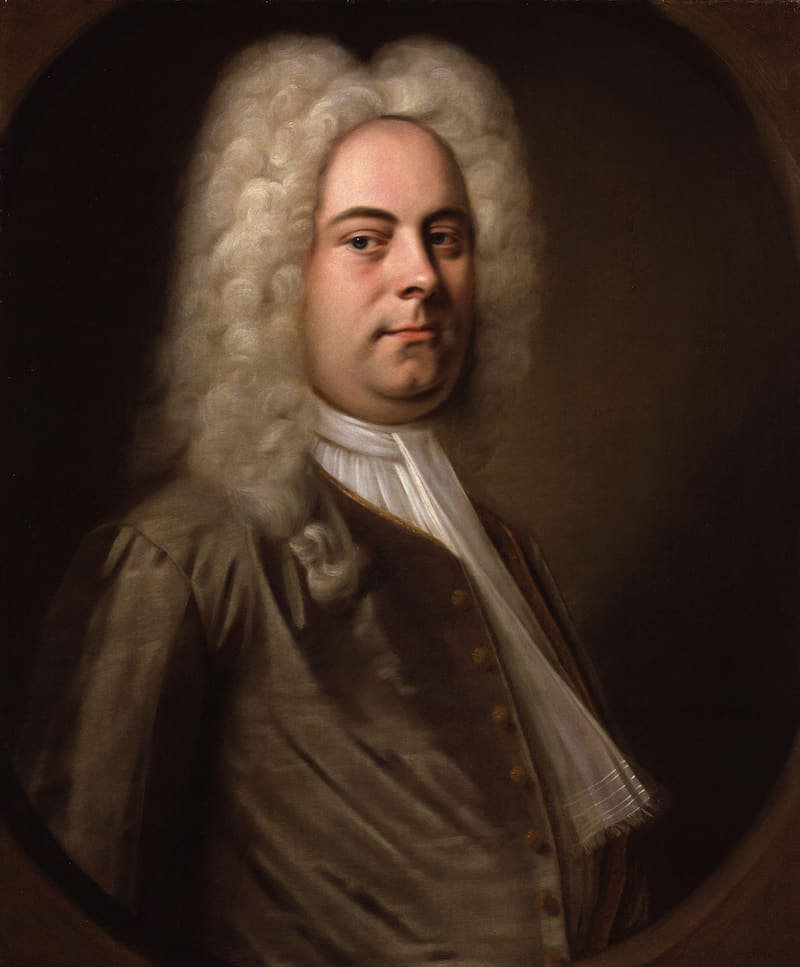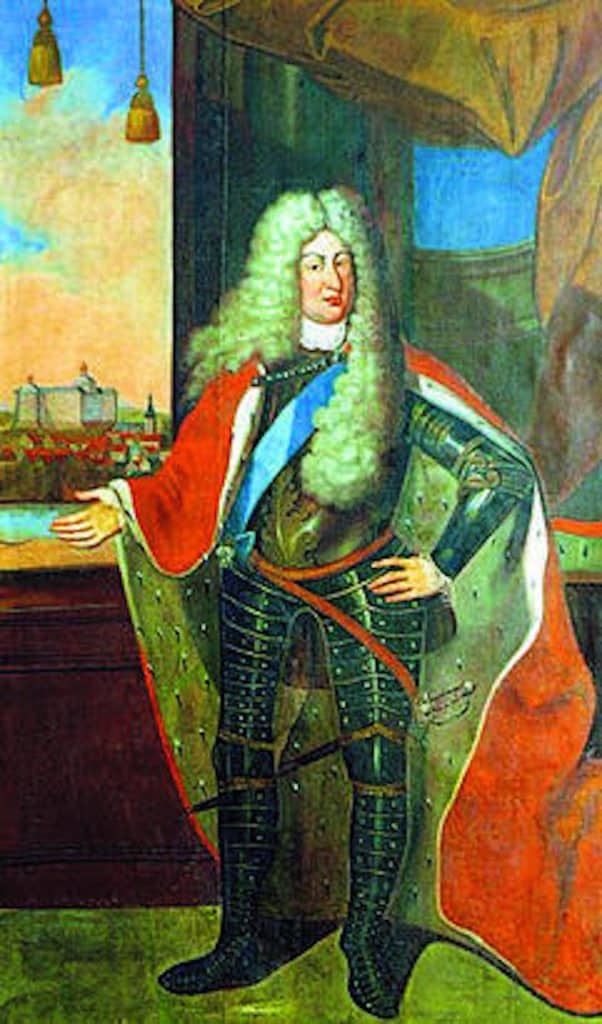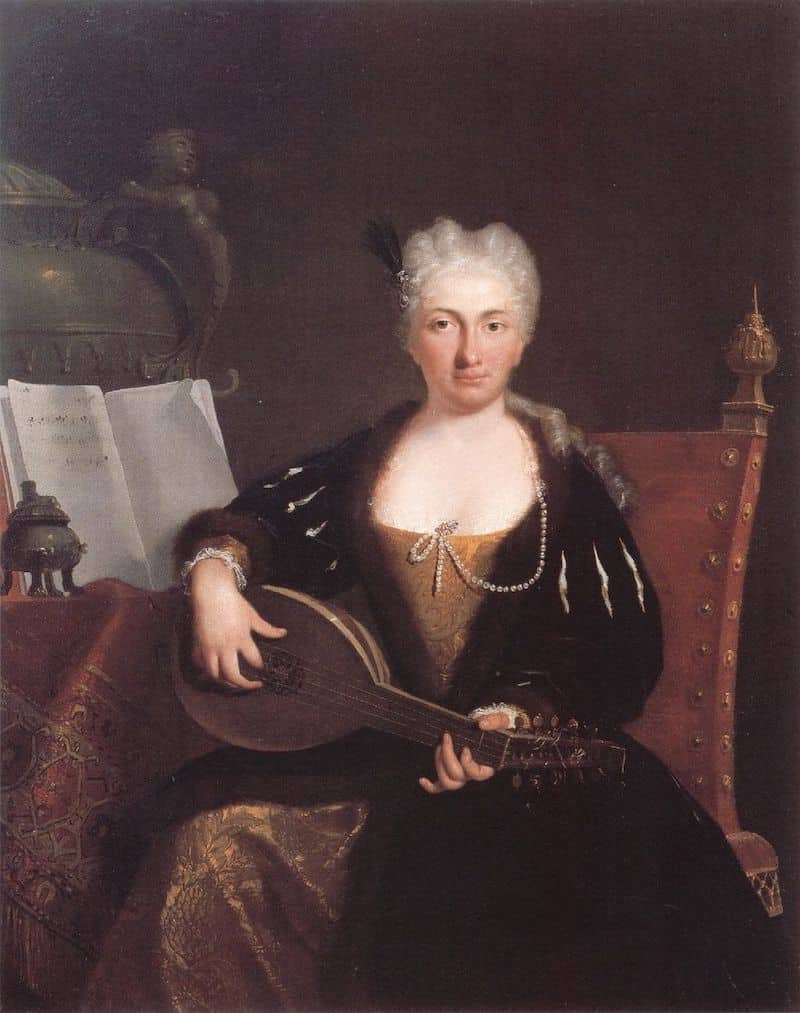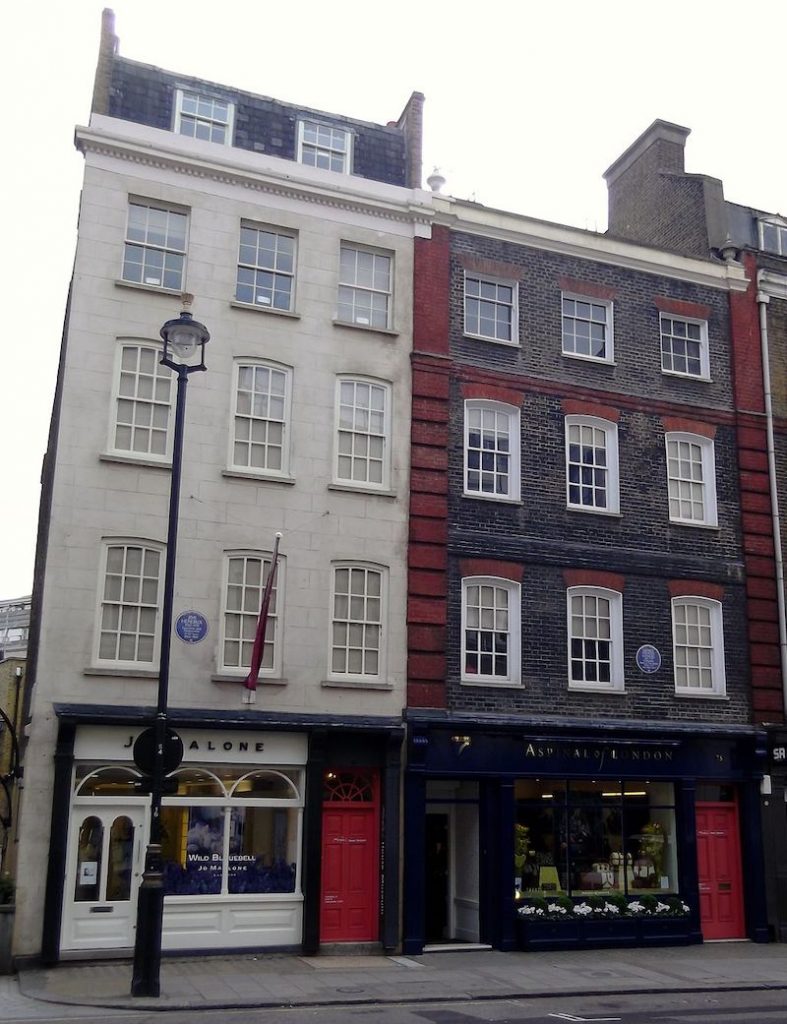Born in Halle, Germany, in 1685, George Frideric Handel was among the greatest composers of the Baroque era. His walking style and large stature earned him the nickname “the Great Bear.” Handel’s operas, organ concertos, oratorios, and anthems made him famous.
Handel moved to Great Britain as a young man, where he composed one of the most famous and frequently performed oratorios of all time—the Messiah. The German composer was a private man and never married. This article explores some of the most interesting facts about this composer’s life.

1. His Father Disapproved of His Love of Music
If Handel’s father had had his way, Handel would have never become a great composer as he didn’t allow him to play music at home.
As a child, Handel had to sneak into the attic of his home to practice the clavichord his mother had smuggled into the home.
Handel’s father didn’t want him to study music, so he spent a year studying law at the University of Halle.
But, thankfully, he was unhappy studying law and dropped out of the university to become a musician.
2. He Displayed His Greatness at a Young Age

Although his father disapproved of his musical pursuits, Handel’s talents were undeniable.
During a trip Handel took with his father at five years old, someone sat him in front of an organ.
Handel’s performance surprised everyone present, including the Duke of Saxe-Weissenfels Johann Adolf I. The duke convinced his father to let the boy study music.
Handel was composing by the time he was nine years old. His teacher, Friedrich Wilhelm Zachow, taught him to play the harpsichord, violin, organ, and oboe.
3. His Best Friend Almost Killed Him in a Duel
A large metal button on his coat saved Handel from almost certain death at the hands of his best friend and composer Johann Mattheson.
The duel occurred during the premiere of Mattheson’s opera Cleopatra in 1704 before Handel had written anything of note.
The brawl broke out when Handel refused to give up the conductor’s chair during the performance.
When the young composers couldn’t settle their argument, Mattheson challenged Handel to a duel.
Handel almost died from one of Mattheson’s sword thrusts, but the large button on his coat deflected the blow.
The rivals later reconciled and remained friends until Handel died in 1759.
4. He had a lot of Bickering Divas

Handel’s immense fame allowed him to pick and choose the leading ladies for his performances.
Rival sopranos Faustina Bordoni and Francesca Cuzzoni were his top picks, encouraging their feud even more.
Their feud reached a crisis point when a vicious fight broke out on stage during a performance of Bononcini’s Astianatte.
The ladies were dragged off stage to keep them from ripping each other’s costumes to pieces.
5. He was Known to be Hot-Headed
Handel was a perfectionist with a terrible temper.
He was notorious among other musicians for being demanding and overly strict.
When soprano Francesca Cuzzoni failed to perform his score exactly how he expected, Handel reportedly threatened to throw her out of the window.
While rehearsing Flavio, Handel said more people would pay to see Scottish tenor Alexander Gordon jump onto his harpsichord than hear him sing.
Handel also threatened to withhold a performer’s wages when he said Verdi Prati in Alcina was not suitable for him to sing.
Nobody escaped Handel’s wrath. He even chastised the Prince and Princess of Wales when they arrived late to a preview of oratorios at Carlton House.
6. He (Practically) Wrote the Champions League Anthem
Fans of the UEFA Champions League have been listening to Handel’s music for many years during Champion League broadcasts.
The Champions League Anthem is an adaptation of Handel’s Zadok The Priest which he wrote for King George II’s coronation in 1727.
Since its first performance, it’s been sung at every coronation of the British monarchy since.
Although the Champion League anthem’s composer Tony Britten denies it, classical music lovers will instantly recognize the anthem as Zadok.
Written in 1992, the anthem uses several elements from Handel’s original composition.
Swedish author Johan Fornäs says the anthem, “…makes use of several elements from Handel’s original composition, but reshuffles and transforms them to suit the new context.”
What do you think?
7. He Became a British Citizen

After the debut of his opera Rinaldo in 1711, Handel became very popular in Britain.
He made England his permanent home several years later, becoming a naturalized citizen.
Although he was born and educated in Germany and technically one of the great German composers, Handel’s fame was so great that many Brits claimed him as their own.
Handel gained a royal following after impressing King George with the Water Music of 1716, which he wrote as entertainment for a royal boat outing.
Queen Anne paid him a generous £200 when he moved to London in 1712, and he moved into 25 Brook Street, Mayfair, London.
Interestingly, famous guitarist Jimi Hendrix later lived at 23 Brook Street, and the two homes are now a museum you can visit.
He had a great deal of affection for London and remained there until he died in 1759.
8. He had a Big Heart
England’s first children’s charity, the Foundling House, was a well-known recipient of Handel’s generosity.
Handel arranged a performance of the Messiah at the charity in 1750, which became an annual event.
He became a governor of the hospital the day after the concert in recognition of his generosity.
He gave the hospital the rights to the Messiah after he died.
9. His Health Issues
Although he lived to be 74 years old, Handel was plagued by health issues throughout his life.
He suffered a stroke when he was 52 years old, which paralyzed his right arm and kept him from performing.
Many considered his quick recovery a miracle because they didn’t expect him to perform again.
He also suffered from cataracts and was blinded during a botched surgery to remove them in 1751.
10. Standing Tradition
It’s become a tradition for audience members to stand during the performance of the Hallelujah Chorus from Handel’s Messiah.
This convention dates back to King George III, who, during the premiere of the Messiah, stood up during the piece.
Nobody knows why he did so, but the prevailing theory is it was out of respect for the masterpiece.
Final Thoughts
Handel died in London on April 14, 1759. He was buried in Westminster Abbey with full state honors, reflecting his significant impact on British society.
His monument in Westminster Abbey shows him composing his masterpiece, the Messiah.
If you’re ever in London, be sure to visit his fully restored London home on 25 Brook Street in Mayfair.
